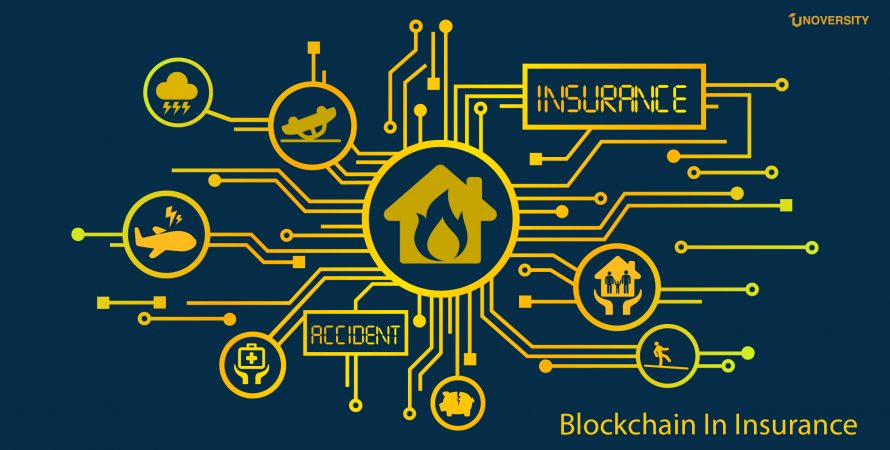The banking industry is strictly centralized in all departments and is also conservative in their approach. But blockchain on the other is decentralized in a way that can clear many roadblocks that exist in the traditional banking system. The wide diffusion of blockchain in the recent years, the popularity of cryptocurrencies like Bitcoin, and the Initial Coin Offering (ICOs) having made the way in many countries have added to the fact that the management of many banks and financial organizations no longer doubt the potential of blockchain technology.
Some of the prominent banks have been conducting tests of decentralized blockchain technology for future implementation of the same in their business processes. Banks continue to fund in a variety of projects and start-ups that are generating blockchain-based solutions.
According to a survey conducted by the Accenture consulting company, that specializes in strategic planning, about half of all top managers admit that blockchain is going to play a key role in the progress of financial companies in the near future. The analysts have found that the world banking sector will save up to $20 billion by 2022 from implementing blockchain.
While there are still numerous barriers to overcome before blockchain modifies traditional finance and banking, the possible cost and labor savings it could create for the global remittances market are interesting that many major financial institutions are investing millions in resources to research how best to implement it. Blockchain is a technology that has the potential to have wide-reaching implications that will not just transform financial services but many other businesses and industries.
The earliest use of blockchain was within the cryptocurrency and financial payment area. For this reason, and perhaps because of the overall surge in market advantage and capitalization of blockchain projects, the financial industry has taken a notable interest in this technology.
last year Barclays -British multinational investment bank and financial services company – placed themselves at the forefront by executing the security and transparency aspects of blockchain technology into their transaction methods. This multinational launched a first of its kind, blockchain-backed credit transaction between Ornua and Seychelles Trading Company. It involved the first trade documentation to be encrypted and managed on a blockchain network. The use of a decentralized ledger technology to store and send the documents saved the bank vital time and money on the transaction.
Goldman Sachs also made headlines when they announced that they are establishing up a cryptocurrency trading operation. Similarly, US financial firms CME Group, Cantor Fitzgerald, and CBOE have also listed cryptocurrencies.
In the case of Barclays, the company clearly found a competitive advantage in incorporating blockchain technology in banking.
Deloitte, the accounting and professional services company has recently issued a report which draws key advisory principles for blockchain adoption on a global scale, refining on areas such as macro-implementation in governmental and legal practices, or cybersecurity controls.
A comprehensive and data-driven research presented by a trusted company like Deloitte clearly proclaims the demand for information by similar financial institutions who want to understand how their banks, hedge funds, and similar organizations can find their own blockchain use cases.
Banks could also take advantage by incorporating blockchain for recording loans and securities. When a US company raises capital from a syndicated loan it can take up to 19 days for the transaction to be completed by traditional banking process. After that, if the loan is rearranged to another bank, or it is repaid early, the appropriate documentation is still often processed by fax.
Accenture has lately estimated that the global financial industry could save up to $10 billion by adopting blockchain to store and process clearing and settlement.
Similar to credit documentation transfer to a decentralized ledger, blockchain banking will be able to preserve significant amounts of time and billions of dollars in capital by choosing to transfer all loan and security documentation to an active ledger which streamlines document storage and processing times.
Blockchain helps banks in bypassing the increasing costs of preserving aging infrastructure and complying with rigid regulatory troubles. Blockchain in banking and the cross-border financial system could improve the industry by flagging the way for a more responsive and flexible infrastructure.
Grupo Santander, the largest Spanish banking group, also one of the leaders in the UK, is a pioneer in the implementation of blockchain technology in the banking industry. Santander, controlled by Banco Group, has deployed a fully functioning One Pay FX payment system running on the Blockchain.
Ana Botín, Executive Chairman of Banco Santander, said:
“One Pay FX uses blockchain-based technology to provide a fast, simple and secure way to transfer money internationally – offering value, transparency, and the trust and service customers expect from a bank like Santander.
“From today, customers in the UK can use One Pay to transfer money across Europe and to the US. In Spain, customers can transfer to UK and US, while customers in Brazil and Poland can transfer to the UK.
“Transfers to Europe can be made on the same day and we are aiming to deliver instant transfers across several markets by the summer.
“Our goal is to help the thousands of people who use international payments services every day, and we will be adding more currencies and destinations in the coming months.
“Blockchain technology offers tremendous opportunities to improve the services we offer our customers, and the launch of Santander One Pay FX is the first of many potential applications”.
The Middle East is one such region where blockchain banking could make a real societal. According to a World Bank Global Findex Database, only 14% of studied Middle-Eastern citizens reported having a financial or bank account.
Owning a bank account is the basic requirement for employment production, improving income levels, and reducing poverty. Combined with recent inventions such as mobile banking and fintech, Middle Eastern digital innovators will be able to take good advantage of Blockchain to create quick, trustless and reliable, ledger-based financial products with a much higher chance of customer-base perception that their traditional predecessors could not render.






Blockchain: The Answer to China’s woes?